Buyer Beware: Chinese Drug Cartel Properties Are Hitting the Market in Rural Maine
Properties once controlled by Asian Transnational Criminal Organizations are up for sale. The real estate listings aren't always disclosing potential hazards to unsuspecting buyers.
Finally, some good news
Emerging signs suggest Chinese organized crime in Maine is abandoning once profitable properties. Increased media scrutiny and voter concern have spurred action. Sheriffs Dale Lancaster (Somerset), Troy Morton (Penobscot), and Todd Brackett (Lincoln) have disrupted criminal operations, costing syndicates an estimated $3M–$5M per house monthly. Sen. Susan Collins (R), without support from Sen. Angus King (D), Rep. Chellie Pingree (D), or Rep. Jared Golden (D), has raised the issue with Attorney General Pam Bondi and intelligence and law enforcement leaders. Once President Donald Trump appoints a U.S. Attorney for Maine, efforts to dismantle these transnational criminals should intensify.
Expelling these criminals is only the first step. Their activities have degraded Mainers’ quality of life, contaminated cannabis and hemp products nationwide, and bankrupted legal cannabis businesses due to the Mills Administration’s lax enforcement of regulations and drug trafficking laws. The 300–400 properties converted into illicit cannabis production and support facilities, removed from the housing supply, now face severe damage. These homes, likely contaminated with black mold, toxic pesticides, fungicides, and other chemicals, may be unfit for habitation without extensive testing. The reckless use of these substances, akin to the U.S. military’s Agent Orange deployment in Vietnam, poses uncertain health risks for families. Real estate agents must disclose these hazards when selling these properties, though many currently skirt the edges of their ethical obligations.
Why it matters
We’ve uncovered strong evidence that Chinese cartels are importing unregistered, illegal pesticides and fungicides from China by way of California, using them unlawfully to boost profits at black-market cannabis facilities.
Many houses used by these cartels for substandard cannabis cultivation are contaminated due to the chemicals and application methods. Non-Maine agencies have identified chlorthiophos, fenobucarb (BPMC), isoprocarb (MIPC), procymidone, and tridemorph—none registered for U.S. use. The cartels mix these toxic chemicals in cut beer cans or metal drums, burning them as fumigants. The resulting smoke coats cannabis plants and everything in the house. While this kills crop-damaging pests, the chemicals linger, posing a second-hand poisoning risk to unsuspecting families buying these discounted properties.
Law enforcement records led us to a Monmouth house receiving these chemicals. Days after our story was published, it was listed for sale—no coincidence. A woman who toured the property with her two young children soon contacted me, reporting that all three developed respiratory symptoms within minutes. When I reached out to the realtor, she didn’t respond, but the property was abruptly pulled from the market—also no coincidence.
This Monmouth home isn’t the only site where illegal chemicals have been used in ways that cause lasting damage to properties and future residents. Earlier this year, the Somerset Sheriff’s Office searched a Chinese marijuana grow on Middle Road in Fairfield, finding the same Chinese-made fumigant toxins identified in California and shipped to central Maine.
Here are other Maine houses currently listed for sale, previously used for illicit operations:
9 St. Albans Road, Corinna - $121,000
In early 2024, a multi-agency task force raided a large house across from the Corinna town office. Previously owned by an LLC linked to several illicit cannabis operations across Maine, this property was a prime target for seizure by the U.S. Justice Department. It’s now listed for sale, but the online listing vaguely refers to its past as an “agricultural operation.” A U.S. Marshal’s disclosure tied to the property hints at its dodgy past.
549 Main Road, Passadumkeag - $228,000
In Passadumkeag, a property owned by GC 168 LLC, connected to multiple unlicensed marijuana grows in Maine, is also for sale. The Penobscot County Sheriff’s Office raided this facility, arresting Xisen Guo, a New York man who became the first Chinese grower in Maine to face federal charges. The public listing omits any mention of the property’s use as a black-market cannabis operation. Xisen “Tom” Guo, a “New York man,” was the first Chinese grower in Maine to face federal charges.
424 Maplecrest Road, Parsonsfield -$250,000
A sprawling York County complex, one of the few Chinese marijuana grows in the area, was raided by the Maine State Police, one of only three such operations they targeted. I suspect their involvement stemmed from the property owners’ connection to Bonsai’s Restaurant in Manchester, New Hampshire, as Maine troopers likely wanted to avoid appearing lax to their New Hampshire counterparts in the fight against Chinese organized crime. The real estate listing markets this former Maplecrest Hospital as a “housing opportunity” with “space, space, space!” and notes it’s sold “as is” with disconnected power. It fails to disclose its drug house history. Photos, however, reveal its uninhabitable state, deemed so by the Code Enforcement Officer, with thousands of dollars in abandoned marijuana-growing equipment left behind.

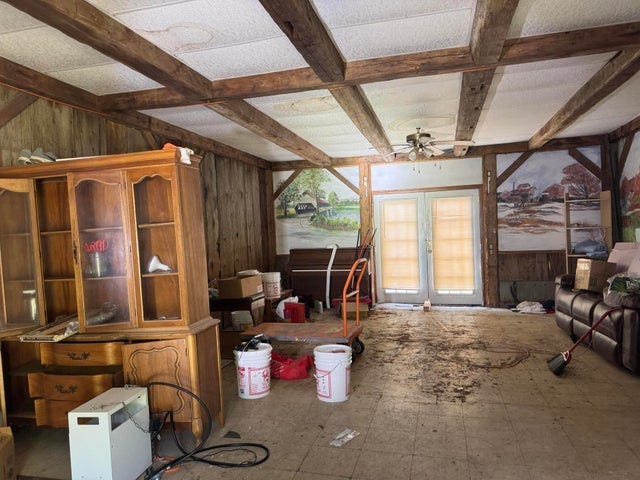
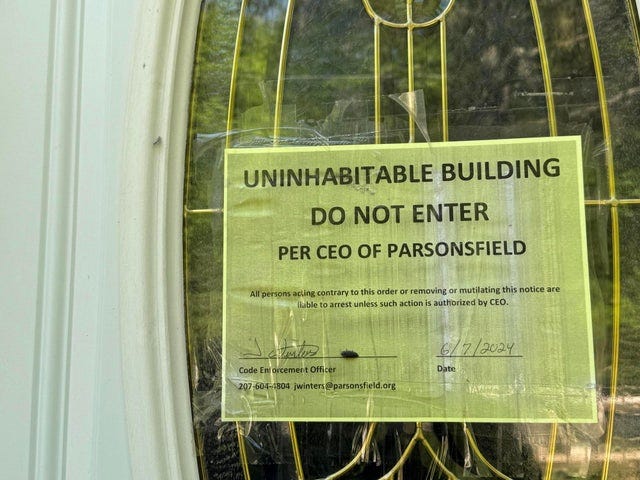

55 Industrial Drive, East Millinocket - $500,000
In East Millinocket’s Katahdin Industrial Park, a 15,000-square-foot industrial facility, owned by Darian Chen (also known as Yong Z. Chen) of Whitman, Massachusetts, was never raided. The listing openly states it’s “currently set up as a cannabis grow facility,” complete with abandoned equipment. Photos confirm this former scrap metal recycling business was repurposed for cannabis cultivation, storage, living quarters, and possibly a trafficking hub. While visiting, I spoke with the town’s Code Enforcement Officer, who knew Chen well. He noted Chen was fluent in English until asked to allow an interior inspection, at which point Chen would suddenly claim an inability to speak the language.

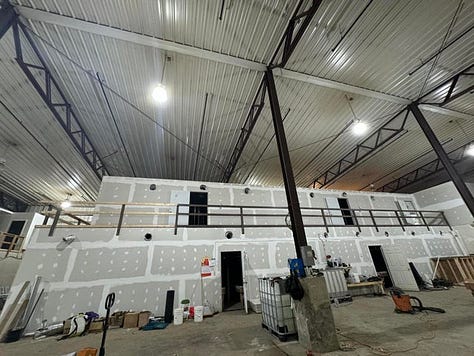

Turning the Tide
The unchecked spread of Chinese organized crime into rural Maine, particularly through low-grade, contaminated cannabis grown in what should be middle-class homes, is showing slight signs of fear. Credit goes to, well, me. But also to local sheriffs and local law enforcement, despite no support from the Mills Administration. If anything, the administration, along with the governor’s brother, encouraged the cartels’ expansion by ignoring the issue and, in the case of Paul Mills, facilitating land transfers. The governor’s appointee at the Office of Cannabis Policy has further shielded suspected transnational criminals by approving their medicinal marijuana licenses. Questions linger about why Governor Mills allowed Chinese mafia influence to grow in rural Maine. Perhaps a future visit from Huang Ping, the Chinese Consul General in New York who attended the governor’s 2019 inauguration, could prompt a private discussion to clarify this mystery.






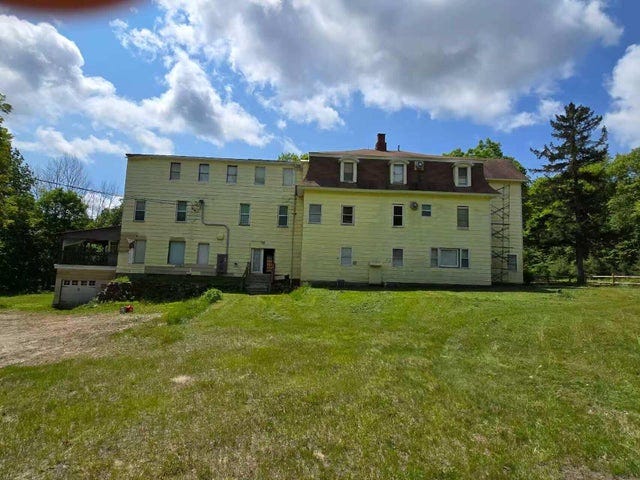
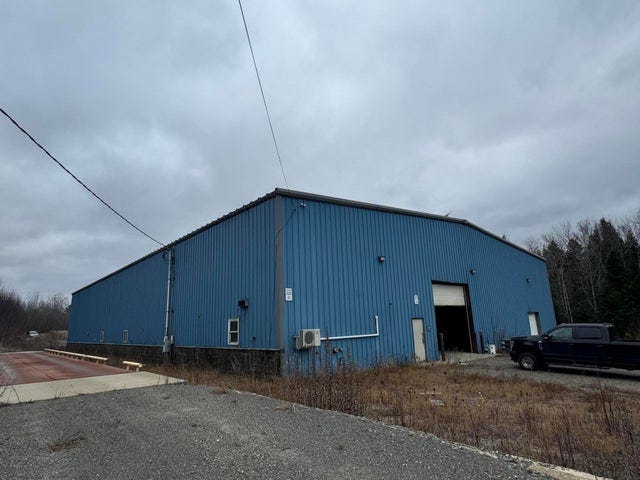
You're the man, Steve. All credit to you.
If he will not speak English, then get an interpreter!!